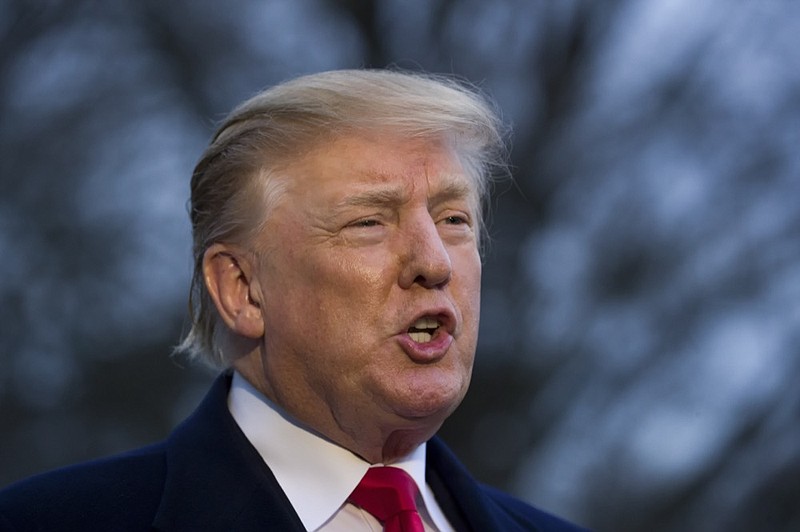President Donald Trump on Friday called on the Federal Reserve to cut interest rates and take additional steps to stimulate economic growth, his latest attempt to put the traditionally independent central bank under his thumb.
Speaking to reporters before traveling to the southern border, Trump once again criticized the Fed's interest rate increases in 2018, saying "they really slowed us down." The president, who is presiding over one of the longest sustained economic expansions in U.S. history, also said the Fed should do more to give the economy a lift.
Trump's comments coincide with his efforts to install allies at the Fed as he heads into a re-election campaign that will largely be a referendum on the state of the economy. While the economy is still strong, the effects of Trump's $1.5 trillion tax cut are waning and his trade war has begun to hurt some U.S. industries, as well as contributing to slower growth in China.
Trump said Thursday that he planned to nominate Herman Cain, a Republican who abandoned his 2012 presidential campaign in the face of sexual harassment allegations, to a seat on the Fed's seven-member board. Trump also plans to nominate Stephen Moore, an adviser and conservative economist who has become a vocal critic of the Fed's interest rate increases, to the central bank's board.
Trump, escalating his previous critiques of the Fed, called Friday for policymakers to return to a policy of so-called quantitative easing: buying assets like Treasury bonds and mortgage-backed securities as a way of pushing interest rates lower.
The Fed engaged in three rounds of quantitative easing after the financial crisis in an effort to improve the economy. It has since stopped the practice and, until recently, had been slowly winnowing its huge balance sheet.
"Well, I personally think the Fed should drop rates," Trump said. "I think they really slowed us down. There's no inflation. I would say in terms of quantitative tightening it should actually now be quantitative easing. Very little if any inflation. And I think they should drop rates, and they should get rid of quantitative tightening. You would see a rocket ship. Despite that, we're doing very well."
The president has become increasingly bold in his efforts to influence the Fed, which he and his advisers blame for economic growth falling short of the 4 percent annual rate last year as he promised. He has repeatedly criticized his handpicked Fed chairman, Jerome H. Powell, and has described the Fed as a counterweight to his economic policies.
The president's comments came amid an economy that, despite some signs of weakness, continues to be doing quite well. The Labor Department reported on Friday that employers added 196,000 jobs last month, a rebound from an unexpectedly lackluster February. Economic analysts surveyed by FactSet had expected a gain of about 170,000 jobs in March. It was the 102nd straight month of job gains.
Fed officials have already diverted from what had been a steady march of interest-rate increases, in the face of stock market turmoil, growing domestic and global economic risks and pressure from Trump.
The Fed raised interest rates four times last year, to the current range for its target interest rate of 2 percent to 2.25 percent, drawing frequent and historically unusual criticism from Trump in the process. The final increase, in December, unsettled investors, until Powell said in January that the Fed would be "patient" before raising rates again.
At the Fed's most recent meeting, in March, Powell again emphasized that the central bank would take a patient approach, and he did not rule out cutting interest rates if data showed the economy faltering. Officials released economic projections that forecast growth slowing to 2.1 percent this year - down from 3 percent last year - and no additional rate increases until 2020.
Lawrence Summers, a former Treasury secretary under President Bill Clinton and the chairman of the National Economic Council under President Barack Obama, said Trump's comments suggested the president's "raw, total confusion" on monetary policy.
"The president publicly debating the Fed undermines confidence in our currency and our country," Summers said in an interview. "Easing is probably premature. And if we were going to ease, the right way would be rate cuts, not bond buying."
